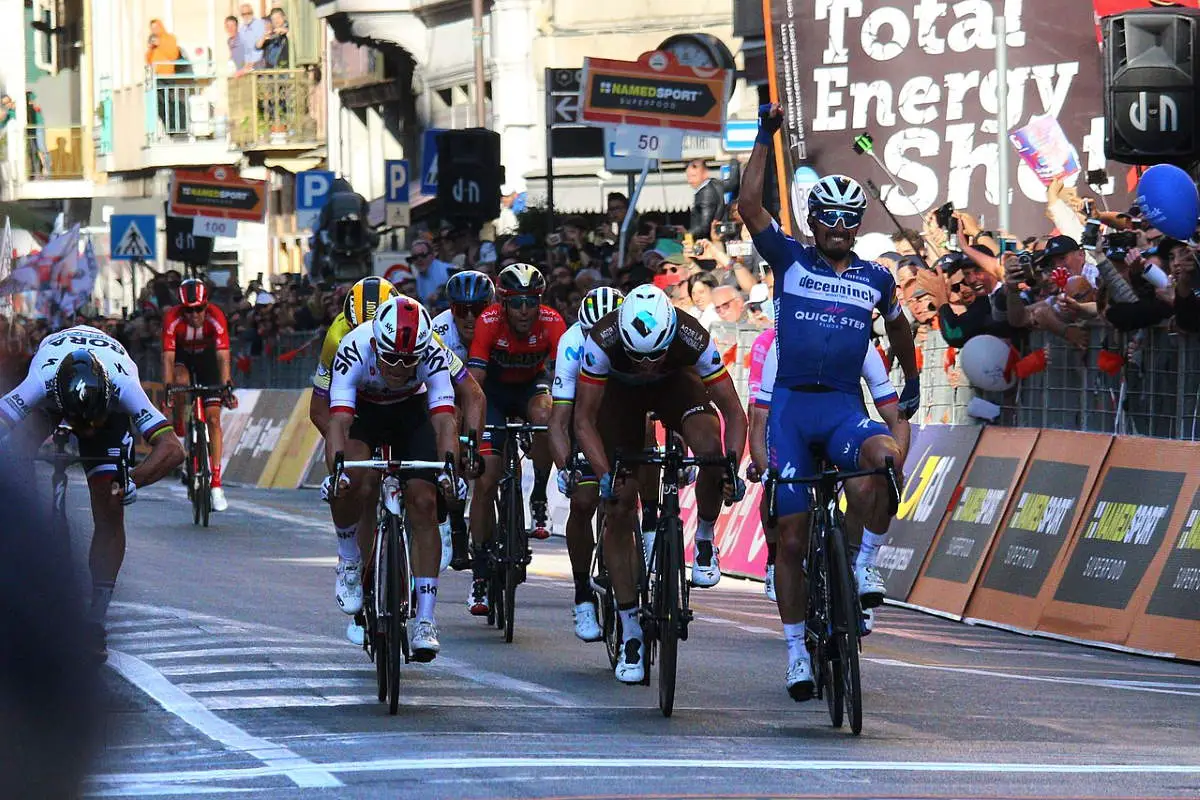“Vélo d’Or” is an award given annually to the cyclist considered to have performed the best over the year. Here is a gallery of Vélo d’Or winners from 2010 to 2019.
Fabian Cancellara (2010)
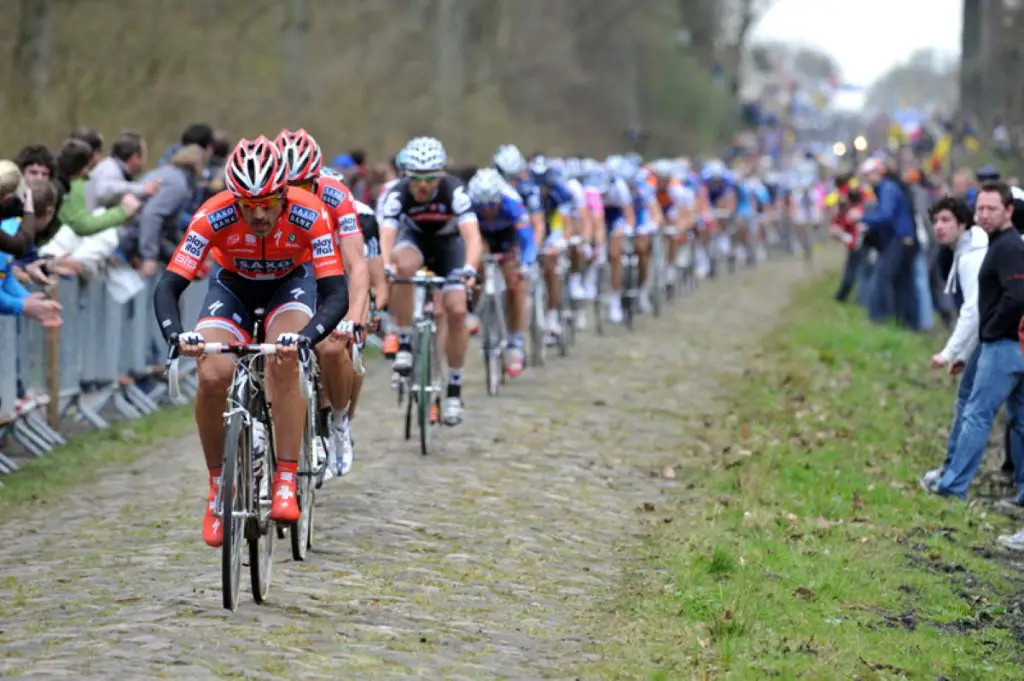
Fabian Cancellara started the 2010 season with an overall victory at the Tour of Oman. In late March, he won the E3 Prijs Vlaanderen after riding away from Tom Boonen and Juan Antonio Flecha with about 2 km (1.2 mi) remaining in the race.
On April 4, at the Tour of Flanders (Ronde van Vlaanderen), he attacked his rival and the other favorite of the race, Tom Boonen, on the steepest part of the Muur van Geraardsbergen, and soloed to the victory.
The next week, at the Paris-Roubaix, Cancellara made a move during the Mons-en-Pévèle portion of the race with more than 50 km (31.1 mi) to go in the race and no one was able to match his efforts. Cancellara then rode solo all the way to the finish in the Roubaix Velodrome and finished two minutes ahead of the second-place finisher Thor Hushovd.
He won the elite men’s time trial at the UCI Road World Championships that took place in Melbourne by over a minute to the second-place finisher and in doing so, he became the first four-time men’s world champion of the time trial.
Philippe Gilbert (2011)
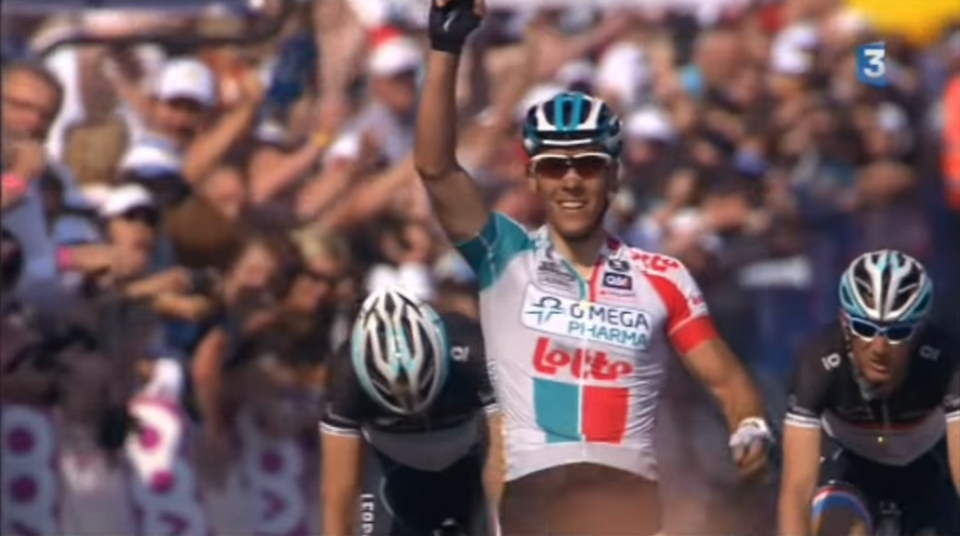
In 2011, Philippe Gilbert won the Montepaschi Strade Bianche, the Italian semi-classic that includes 70 km (43 miles) of gravel roads. He then had a quadruple consecutive win: first, he won the Brabantse Pijl, then he repeated as winner of the Amstel Gold Race, breaking free on the Cauberg.
Three days later, he won La Flèche Wallonne dropping his rivals on the final climb of the Mur de Huy and finally he won Liège-Bastogne-Liège beating the Schleck brothers in the sprint, and becoming the second rider, after Davide Rebellin in 2004, to win the three Ardennes classics in a single year.
During the first half of the 2011 season, he also won stages at the Volta ao Algarve, Tirreno-Adriatico as well as the overall classification and a stage of both the Tour of Belgium and Ster ZLM Toer (a stage race held in the Netherlands as 2.1 race on the UCI Europe Tour).
In late June, Gilbert won the Belgian National Road Race Championships.
In July he won the opening 191.5-kilometer (119.0-mile) stage of the Tour de France, winning by three seconds over the eventual overall winner Cadel Evans, and took the maillot jaune.
A week after the end of the Tour, Gilbert won the Clásica de San Sebastián, and in mid-August, he won the 3rd stage at the Eneco Tour, taking his 15th victory of the season.
In September, he won the Grand Prix Cycliste de Québec.
He eventually finished the 2011 season as the overall leader of the UCI World Tour.
Bradley Wiggins (2012)
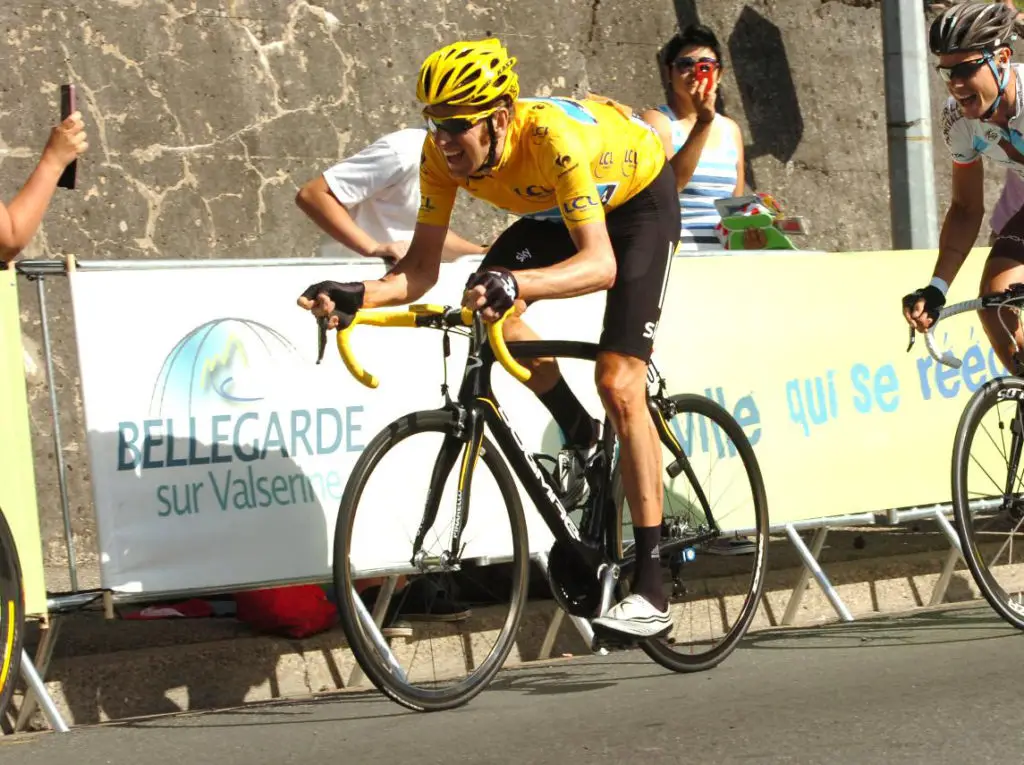
In March 2012, Bradley Wiggins won the Paris-Nice, becoming the first British rider to win the race since Tom Simpson in 1967. In April, he won the Tour de Romandie and became the first Briton to win the race in its 65-year history.
In June, he won the Critérium du Dauphiné.
In July, Wiggins won the Tour de France and became the first British rider to win the French grand tour. He also became the first and is currently (as of 2019) the only person in history to win the Paris-Nice, the Tour de Romandie, the Critérium du Dauphiné, and the Tour de France in a single season.
At the 2012 Summer Olympics in London, Wiggins won gold in the time trial ahead of Tony Martin of Germany and Chris Froome of Britain. By doing so he became the most decorated British Olympian, with seven medals, surpassing the six won by Sir Steve Redgrave.
This record was soon shared with Sir Chris Hoy, who also obtained his seventh Olympic medal in 2012.
Wiggins entered the Guinness World Records, becoming the first (and as of 2019, the only) cyclist to win an Olympic gold medal and the Tour de France in the same year.
Chris Froome (2013, 2015, 2017)
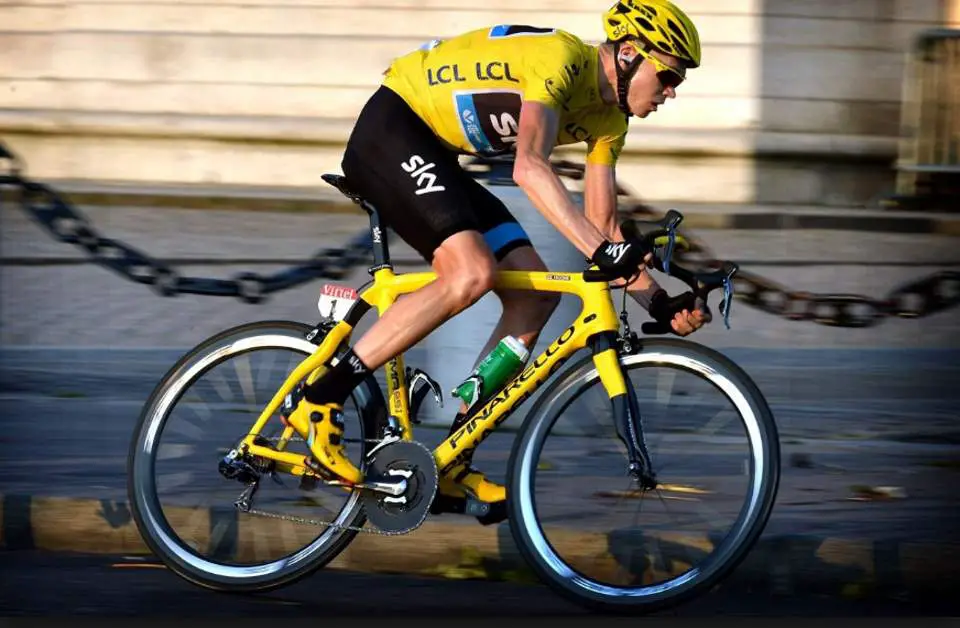
2013
Chris Froome’s 2013 season began at the Tour of Oman, where he took the race lead on stage four, finishing second to Joaquim Rodríguez on the summit finish of Jebel Akhdar. He then won the following stage to extend his lead, out-sprinting Alberto Contador and Rodríguez. He finished the race taking the overall classification, the first stage race win of his career.
In March, he won the Critérium International, a two-day stage race held between 1932 and 2016. In late April, Froome won the Tour de Romandie, his third race win of the 2013 season.
Froome’s final warm-up race before the Tour de France, for which he was favorite, was the Critérium du Dauphiné at the beginning of June. He won and this was Froome’s fourth major stage race victory of the season, out of the five he had entered (he lost the Tirreno-Adriatico in March to Vincenzo Nibali).
On 21 July, Froome won the Tour de France general classification, becoming the second Briton to win the Tour, after Bradley Wiggins.
2015
In February, Froome won the Ruta del Sol in Spain ahead of the 2nd placing Alberto Contador.
In June, he won the Critérium du Dauphiné.
Then, in July, he won his second Tour de France. He also won the mountains classification.
2017 – Completing the Tour-Vuelta double
Froome won his fourth Tour de France title on July 23, 2017. He beat Cannondale’s Rigoberto Urán by 54 seconds.
Then, in September, he won the Vuelta a España (including two stages) and became the first Briton to win the Spanish grand tour. He also won the points classification.
Alberto Contador (2014)
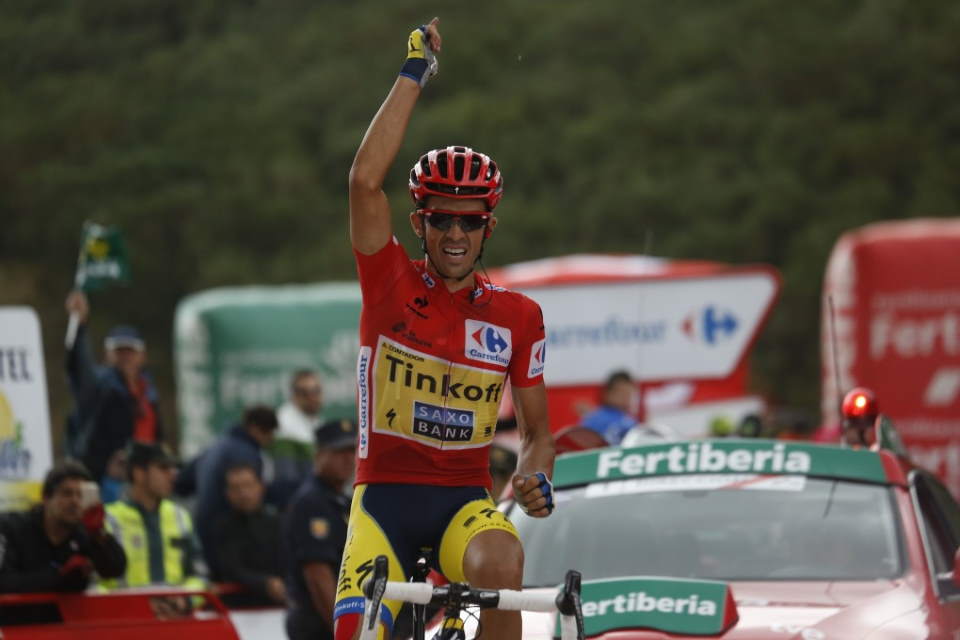
Contador’s 2013 season was disappointing. In 2014, he won the Tirreno-Adriatico in March, winning two stages out of seven and finishing 2:05 clear ahead of runner-up Nairo Quintana.
His next objective for the 2014 season was the Tour of the Basque Country (Officially: Itzulia Basque Country, Spanish: Vuelta al País Vasco, Basque: Euskal Herriko Itzulia, an annual stage race held in the Spanish Basque Country in April). He won the race by 49 seconds ahead of Michał Kwiatkowski.
In the Tour de France 2014, Contador entered the race in a much better form. He would avoid crashing during the first week but he lost a lot of time in the fifth stage of the race, the stage featuring cobbles as part of the route. He lost around 2 and a half minutes to fellow GC contender, Vincenzo Nibali of Astana, as he was unable to bridge the gap to him after mud became stuck in his gears.
On the Tour’s first summit finish going to Gérardmer, he attacked as Nibali went with him. Contador made a final acceleration near the finish line as he took 3 seconds back on Nibali.
However, disaster struck him on the 10th stage. On the descent of the Petit Ballon, Contador crashed heavily before he was treated on the side of the road. He tried to ride for nearly 20 kilometers after the crash but he eventually abandoned the Tour.
The Vuelta a España witnessed a duel between Contador and Chris Froome. In the mountains, no other rider was able to cope with them. But they were also unable to gain significant time on each other. Mostly Contador was the attacking rider, and he managed to drop his rival many times. But Froome always came back, spinning a high cadence, his well-known feat.
Until stage 16. On the race’s queen stage to La Farrapona, Contador followed Chris Froome’s attack with 4 kilometers to go while distancing other GC contenders. He stayed in his rival’s wheel before finally putting on a finishing kick with around 800 meters to go, winning the stage and strengthening his hold on the red jersey.
On the final stage individual time trial, he rode conservatively on wet conditions to avoid any mishaps and though he lost time to the other favorites, he had more than enough time in hand to win his third Vuelta.
Peter Sagan (2016)
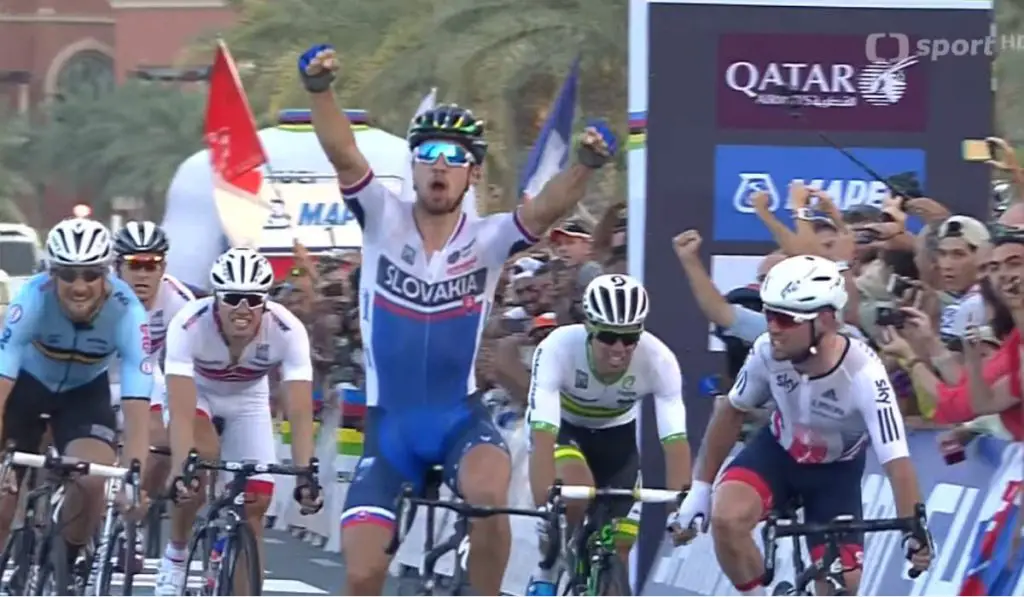
Peter Sagan took the first win of the 2016 season, also his first win as a world champion by at Gent-Wevelgem, becoming the first reigning world champion to win the race since Rik Van Looy in 1962.
Then, he grabbed his first Monument victory at the Tour of Flanders.
In July, he won his fifth consecutive points classification at the Tour de France, winning two stages along the way.
He won the UCI World Championships for a second time in Doha, Qatar on 16 October. He came into the finish with the other 24 breakaway riders and won the subsequent bunch sprint ahead of Great Britain’s Mark Cavendish and Tom Boonen of Belgium, respectively. One interesting thing is – all the riders standing in the podium had won the title in previous years: Peter Sagan in 2015, Mark Cavendish in 2011, and Tom Boonen in 2005.
Sagan won the UCI World Championships for a second consecutive time in Doha, Qatar on 16 October. He came into the finish with the other 24 breakaway riders and won the subsequent bunch sprint ahead of Great Britain’s Mark Cavendish and Tom Boonen of Belgium, respectively. One interesting thing is – all the riders standing in the podium had won the title in previous years: Peter Sagan in 2015, Mark Cavendish in 2011, and Tom Boonen in 2005.
Alejandro Valverde (2018)
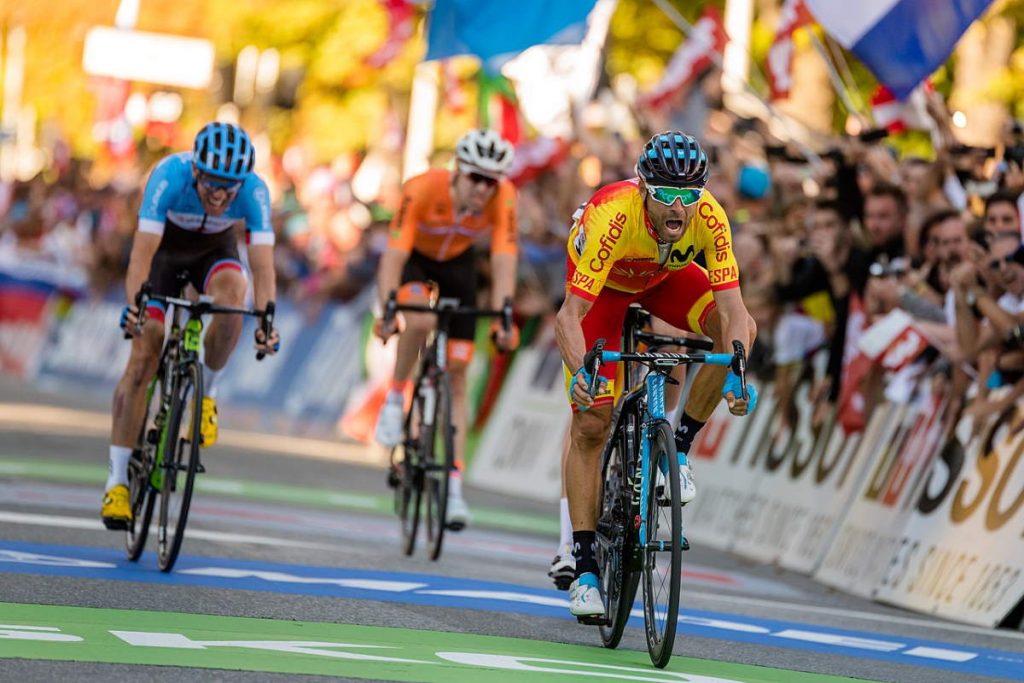
In 2018, at the Volta a la Comunitat Valenciana, Alejandro took his first victory of the season after his comeback from a knee injury, winning stage two and taking the overall lead in the process.
Later in February, Valverde claimed overall victory at the Abu Dhabi Tour, winning the stage to Jebel Hafeet.
In March, he won the Volta a Catalunya for the third time in his career. He won the second and fourth stages during the race, taking the race lead – and the mountains jersey as well – after his second stage victory. He finished 29 seconds clear of his nearest rival, teammate Nairo Quintana. He also took the victory in the GP Miguel Induráin.
Valverde won the gold medal at the UCI Road World Championships in Innsbruck, Austria, in his twelfth participation. He triumphed in a small group sprint at the finish line ahead of Romain Bardet, Michael Woods and Tom Dumoulin, becoming the second oldest Road World Champion in history (38 years and 5 months) after Joop Zoetemelk, who won the worlds in 1985 at the age of 38 years and 9 months.
Julian Alaphilippe (2019)
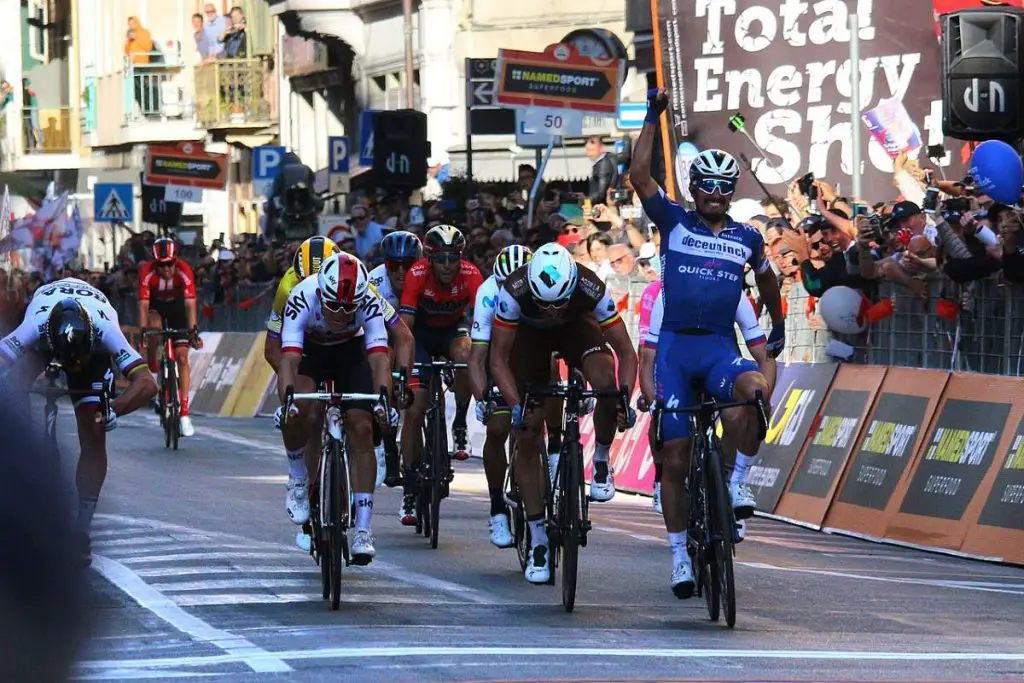
Alaphilippe’s first major race was the 2019 Strade Bianche in March. He won the race, beating out Astana rider Jakob Fuglsang in a kick up the final climb.
He finished 6th overall in Tirreno-Adriatico, earning a surprise victory on stage 6 despite leading out his team’s designated sprinter Elia Viviani.
Alaphilippe won his first Monument, in the 2019 Milan–San Remo after attacking on the famous Poggio climb and outsprinting Oliver Naesen and Michal Kwiatkowski to the finish line.
This victory followed up by a near-miss of a podium place for the Amstel Gold Race (which won by the Dutch rider Mathieu van der Poel of Corendon-Circus team). Then, three days later, he successfully defended his La Flèche Wallonne title that he had won in 2018.
He won the third stage of the Tour de France on July 8th, simultaneously earning himself the yellow jersey. After losing the jersey on stage six to Giulio Ciccone, he regained it after the eighth stage, where he finished third.
He then surprisingly won stage 13, the individual time trial, in Pau by beating Team Ineos’ Geraint Thomas by 14 seconds. He kept the jersey until stage 19 after being dropped on the Col de l’Iseran.
It was his most successful Tour de France to date finishing in 5th place overall, winning 2 stages, wearing the yellow jersey for 14 stages and while he was not named the most combative rider after any individual stages, he did stand on the podium in Paris as the most combative rider for the entire Tour.
Sources
- Fabian Cancellara on Wikipedia
- Philippe Gilbert on Wikipedia
- Bradley Wiggins on Wikipedia
- Chris Froome on Wikipedia
- Alberto Contador on Wikipedia
- Peter Sagan on Wikipedia
- Alejandro Valverde on Wikipedia
- Julian Alaphilippe on Wikipedia
- Top 18 fastest Paris-Roubaix editions - April 7, 2024
- Col de Tourmalet [Amazing photo from the 1953 Tour de France] - January 11, 2024
- Bernard Hinault and Francesco Moser, 1981 Paris-Roubaix - December 8, 2023
